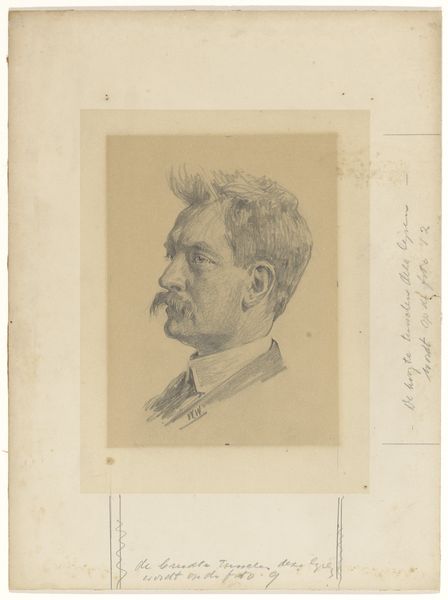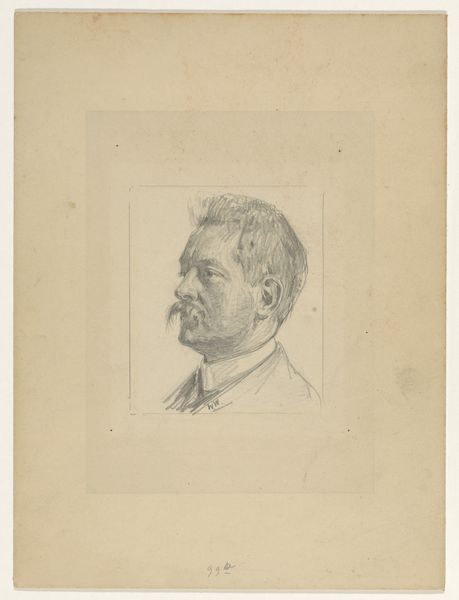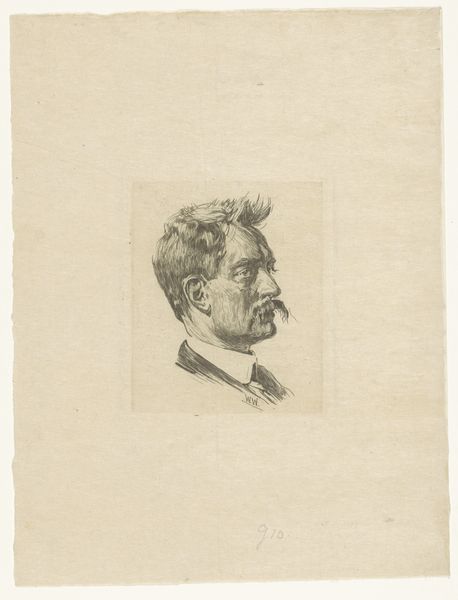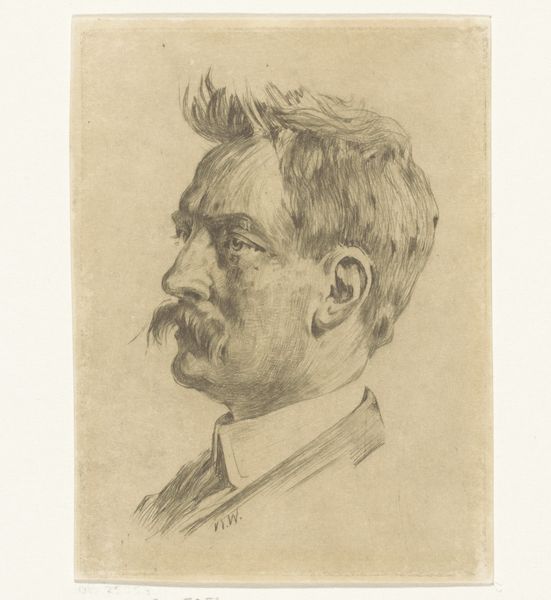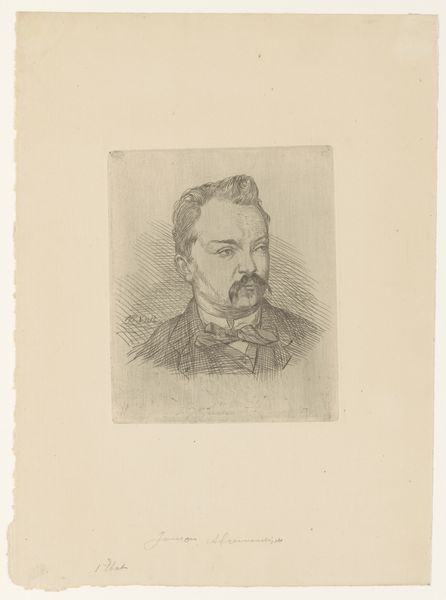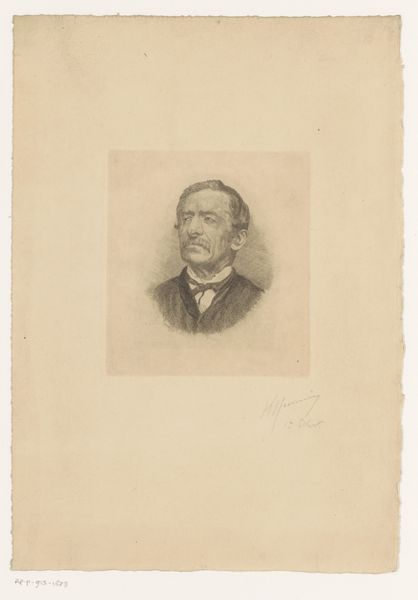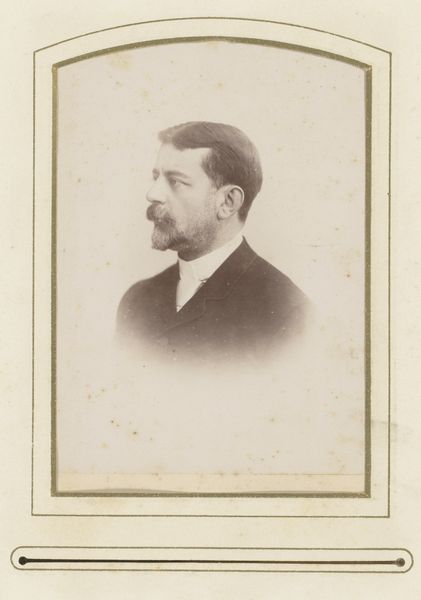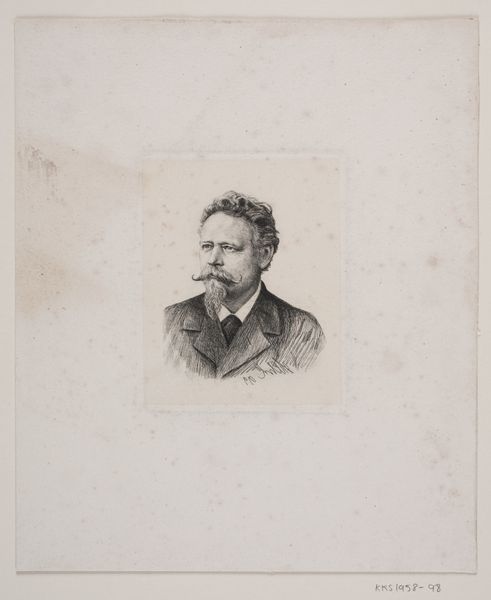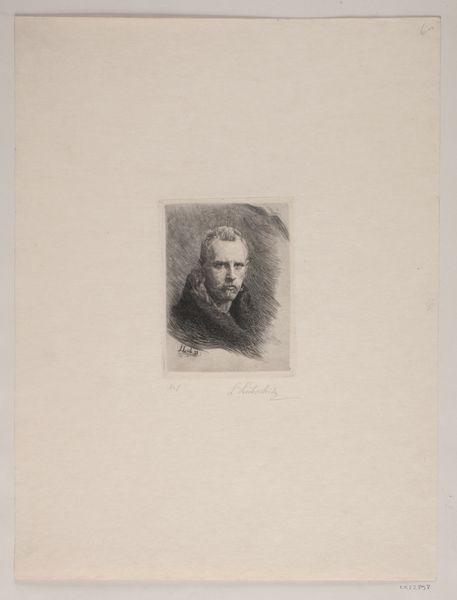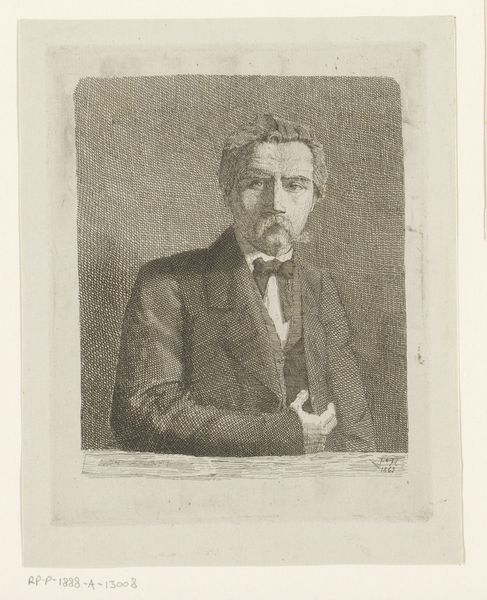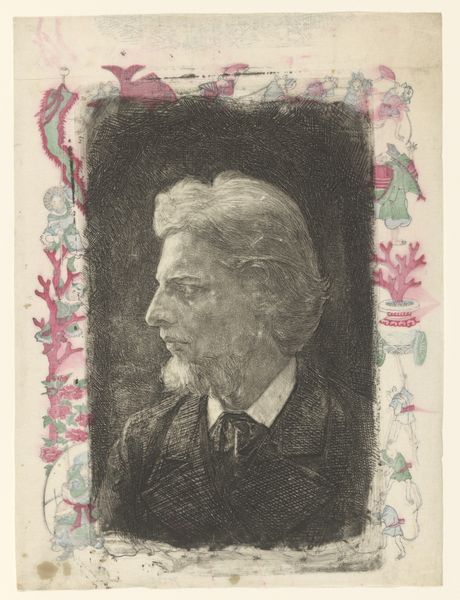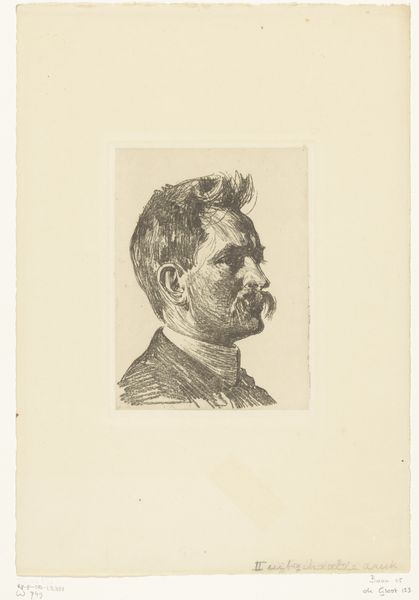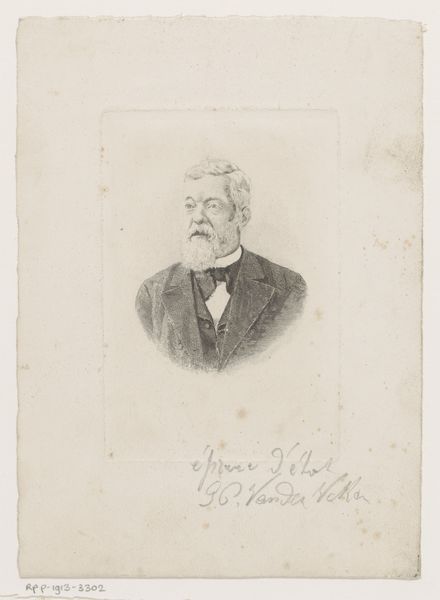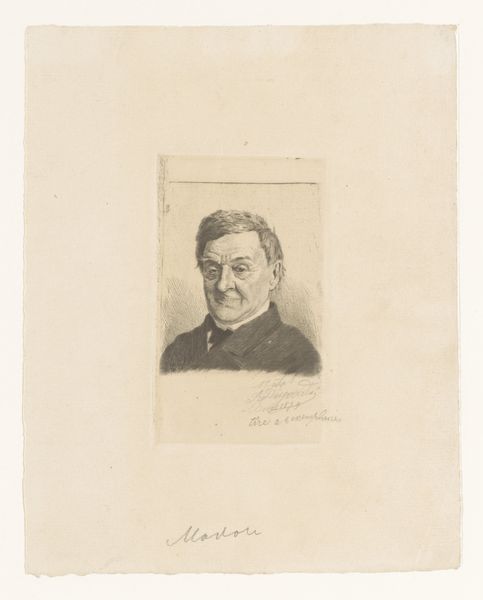
drawing, pencil
#
portrait
#
pencil drawn
#
drawing
#
art-nouveau
#
pencil sketch
#
pencil
#
realism
Dimensions: height 126 mm, width 94 mm
Copyright: Rijks Museum: Open Domain
Editor: So here we have Willem Witsen's "Portret van Jan Hofker" from around 1906, a pencil drawing. It strikes me as incredibly precise, almost photographic in its detail, and yet also has this wonderful softness. What do you see in this piece? Curator: I see a deliberate construction of identity within the artistic and intellectual circles of the time. Witsen was part of the Tachtigers, a group that heavily influenced Dutch art and literature, rejecting romanticism for a more direct and realist portrayal. Editor: So this isn't just a likeness, it’s a statement? Curator: Precisely. The pencil drawing, a medium readily available and portable, connects to the era's emphasis on accessible art and the rise of independent artist societies. Notice Hofker's confident gaze and stylish mustache. How does that read to you in terms of societal positioning? Editor: It definitely suggests someone self-assured and probably of a certain social standing. I mean, he looks every bit the "modern" man. Curator: Yes! And that modern identity was being carefully curated and performed in spaces like artists’ studios and literary salons. The portrait serves not only as a personal record but also as a visual document of that specific cultural milieu. Think about how such images circulated then, cementing reputations. Editor: That’s fascinating! I had only thought about the aesthetic aspect, but framing it within that socio-political context makes it so much richer. Thanks! Curator: Indeed, and reflecting on how the Rijksmuseum's presentation further shapes the reception of this drawing today, emphasizing Dutch artistic heritage. A portrait's life continues far beyond its creation.
Comments
No comments
Be the first to comment and join the conversation on the ultimate creative platform.
